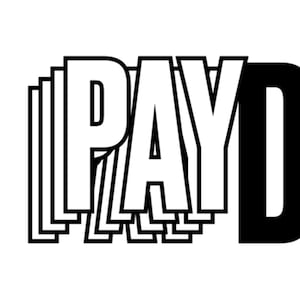This story originally appeared in The Daily Beast newsletter, Pay Dirt. Sign up for that newsletter: HERE.
Indiana Republican Mike Braun is running his U.S. Senate campaign on borrowed funds. More than three of every four dollars in his war chest was loaned to the campaign, and the bulk of it has come from banks with executives who are Braun’s friends, professional acquaintances, or campaign donors.
At the same time, Braun has used a legal but controversial accounting maneuver to circumvent donation limits by re-routing nearly $100,000 in money earmarked for a prior election through funds that he himself has lent to the campaign, and into his general-election account.
Braun is challenging Democratic Sen. Joe Donnelly in a key Republican pickup opportunity, and has reported less than $2 million in direct contributions for the effort, which is dwarfed by the $6.4 million in loans he’s used to bankroll the campaign.
A significant chunk of that money has come from Braun himself; he’s loaned his campaign about $1.8 million. But most of it has come by way of loans from three banks, all of which are charging him relatively low interest rates.
The outsized role that borrowed money is playing in his campaign underscores the degree to which personal wealth can boost a candidate’s political prospects—and provide opportunities for campaign financing that are unavailable to less-affluent candidates.
“Elections are often a game played by the ultra-wealthy,” said Brendan Fischer, the director of federal reform programs for the Campaign Legal Center. “Self-funding candidates don’t always win, but having access to a fat bank account and a six-figure line of credit in the crucial final weeks of the election definitely gives Braun an advantage.”
The first of his campaign loans, an unsecured $200,000 line of credit from a Fifth Third Bank branch in Jasper, Indiana, came the month after Braun launched his campaign. Federal Election Commission and personal financial-disclosure filings indicate that Braun personally took out the loan for the purpose of the campaign, rather than the campaign borrowing the money directly. Fifth Third lent him an additional $385,000 for the campaign in April. It wasn’t the first time Fifth Third financially supported Braun’s political efforts: Its political action committee donated to his statehouse campaign in 2014, and to his re-election effort two years later.
But Braun had even deeper connections to his other campaign lenders. In December 2017, he received a $1.5 million loan, again borrowing the money personally for use on behalf of his campaign, from the Terre Haute, Indiana-based First Financial Bank. The bank would later lend Braun an additional $500,000 for his campaign. He also received a contribution from the bank’s vice president of commercial lending, who also lists Braun as a personal reference on a publicly available version of his résumé.
An additional $2 million in campaign loans has flowed from the Jasper-based Freedom Bank. Two of that institution’s executives have collectively donated nearly $10,000 to Braun’s Senate campaign. One of them, Freedom Bank CEO Eric Olinger, is a personal friend of the candidate. Braun also owns between $100,000 and $250,000 in non-public Freedom Bank stock, according to his personal financial-disclosure filings.
Each of the five campaign loans from those three banks carries an interest rate ranging from 4 percent to 4.75 percent. That’s lower than the rates advertised by Fifth Third, for instance, which offers unsecured personal lines of credit with interest rates between 7 percent and 17 percent, according to its website.
In FEC forms disclosing his campaign loans, Braun’s campaign notes that they were extended to him at the rates they were due to “credit worthiness and candidate net worth.” In other words, Braun is able to finance his campaign with relatively cheap borrowed money due to his own personal wealth. It’s not an opportunity that would likely be available to a less-affluent candidate.
Braun’s wealth also enabled him to pull a campaign accounting maneuver that allowed him to circumvent contribution limits by effectively removing huge amounts of cash from the balance sheets of his Republican primary campaign and transferring it to the account used for the general election.
Individual donors can only give $2,700 per election to a federal candidate. Primaries and general elections are considered two different elections, bringing the total to $5,400. But those donors can also give for the purposes of debt retirement, and Braun figured out a loophole that has allowed a number of his donors to effectively double the amounts they can donate—well exceeding the $5,400 limit—by routing the money through his own personal bank account.
By the time Braun prevailed in Indiana’s May 8 Republican Senate primary, he had already loaned his campaign $1.5 million in personal funds. Soon thereafter, he began accepting contributions for the purposes of paying down that primary-election debt. He used those funds to make three debt-reduction payments to himself between May 29 and June 26. The payments were for $53,104, $24,432.25, and $15,809.10. In all three cases, Braun paid down his own campaign’s primary debts, then immediately re-lent the exact same sums to his general-election effort. The move effectively allowed many of his campaign contributors to give a collective $93,000 above the standard donation limits.
It’s a similar accounting maneuver to one employed by another competitive Republican Senate challenger, Montana’s Matt Rosendale. The move appears to be entirely legal, if perhaps a violation of the spirit of campaign contribution limits.
Regardless of its merits, it’s a maneuver that’s only possible for candidates with enough personal wealth to maintain their own campaign’s line of credit.
Get the data:







